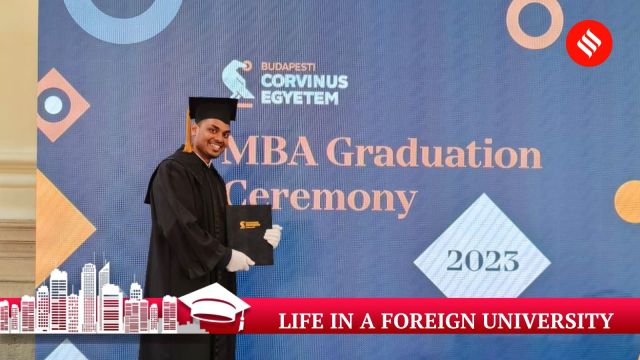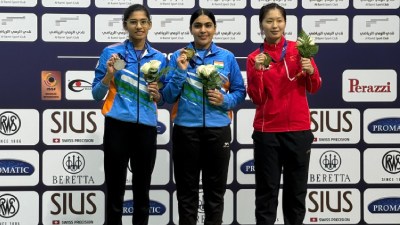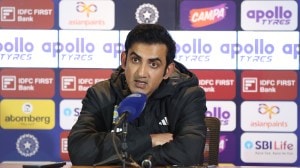As I researched and applied for different opportunities, I realised my ultimate goal was to study in Europe. Budapest, being at the heart of Europe, seemed like an exciting place to experience and immerse myself in a new culture and environment.
Since I have never travelled abroad, this represented a significant opportunity. I also applied to other universities in Europe. However, Corvinus University of Budapest offered me a fully-funded scholarship aligned with my aspirations. It felt like the ideal chance to pursue quality education without financial burden and make the most of this opportunity.
What motivated me to pursue an MBA
I come from a community with deep roots in the fabric and clothing business. My ancestors were weavers and this heritage forms the foundation of our family’s story. My father has worked tirelessly as a tailor, my uncle dedicated his life to designing fabrics, and my grandfather spent his career in a clothing factory. This strong connection to the fabric industry has inspired me to one day pursue work in this field, to honour and preserve my family’s tradition.
Growing up, I was constantly surrounded by this business, observing the immense effort it took to earn a living. I was always curious about how people generate income and find ways to increase it. This curiosity led me to explore numbers and data and sparked an interest in watching Bloomberg. Over time, I became increasingly motivated to learn more about business and the corporate world, and hence decided to pursue an MBA.
In India, I was focused and often saw things from a single perspective. What really helped me broaden my thinking was my MBA class, where my classmates came from across the world. They often told me, “You need to consider things from a different angle, as you’re looking at it from just one perspective.” Collaborating in groups with people from diverse backgrounds made me think more expansively and opened my mind to new ways of approaching problems. Now, I make a conscious effort to look at things from different perspectives and try new approaches to ensure things are working effectively.
Story continues below this ad
Stepping out of my comfort zone — directly in Budapest
When I first arrived in Budapest, I was completely on my own as I didn’t have any friends. One of the initial challenges I faced was the language barrier. I remember landing at Budapest Airport and feeling lost, unsure of where to go or what to do next.
 Sainath with his classmates from Corvinus University.
Sainath with his classmates from Corvinus University.
The university and its Student Support Body offered a mentorship programme, but what proved invaluable was a government-supported website run by the Tempus Foundation. It provided detailed guidance on everything I needed — how to travel to Hungary, what to do upon arrival, currency exchange rates, and much more. I had already started researching through this website months before, while applying for my visa in India, gradually gathering all the information I needed over three to four months.
I also connected with Indian alumni from Corvinus University on LinkedIn. They were helpful in answering my questions about the visa process and offering advice on practical matters like what to do after landing. Personal research and networking were crucial in helping me prepare for the transition.
I brought a small amount of currency from India but avoided carrying much cash due to the inconvenience. Instead, I relied on an international debit card for transactions.
Story continues below this ad
After arriving at the airport, I opted for the cheapest and easiest way to get into the city — a bus. From there, I walked to my dormitory, activated my internet, and took a moment to settle in. Soon after, I started making friends in the dormitory, which made a huge difference.
One moment that stands out from my early days was when I first entered my dorm room. When I came to Hungary, there were no fans in the room. And I asked a senior, “How do I stay cool in summer?” he said, “Open the window.” That simple remark made me laugh and became a light-hearted memory I still share with him when we meet every few months.
Another dorm mate noticed I hadn’t eaten yet and took me out, showing me around and sharing a meal with me. He even bought me some chocolates. His kindness left a lasting impression, and I continued to rely on his help throughout my first year. I remain grateful to him for making those early days much easier and more welcoming.
Difference of learning experience between India and Europe
The learning experience was vastly different between my Bachelor’s and MBA studies, reflecting the contrasting focus and target audience of the programmes. Bachelor’s students are typically fresh out of school and more inclined towards theoretical learning, whereas an MBA emphasises the practical application of knowledge.
Story continues below this ad
At Bangalore University, the curriculum leaned heavily towards theoretical concepts, with some practical components. My connection with professors in India was very close, partly because our class size was unusually small — just 20 students, which is rare in India. This allowed for easy access to professors, who knew each of us well. The days were long, with classes running from 8 am to 4 or 5 pm. It was a packed schedule, leaving little time for other activities.
When I began my MBA in Hungary, the teaching style shifted to a more practical approach. I also had a more flexible schedule. Typically, classes were held on Monday, Tuesday, and Wednesday, leaving the rest of the week for independent study, group projects, or personal pursuits. This flexibility also allowed me to undertake an internship, where I could directly apply concepts from class to real-world work situations, creating a meaningful bridge between theory and practice.
 Sainath on campus with his classmate.
Sainath on campus with his classmate.
Another difference was in the professors’ backgrounds. In India, most professors had extensive academic experience, which shaped their teaching style. In my MBA programme, the faculty came from a more diverse background, often blending academic expertise with significant corporate experience. This mix enriched the learning process and provided a broader perspective on practical business challenges.
Difference in work experience between India and Europe
After graduating with a Bachelor’s Degree from the University of Bangalore, I gained practical experience through internships at a startup, a manufacturing firm, and a government-owned airline, and then began my career as a Senior Research Analyst at Inkwood Research.
Story continues below this ad
In India, workplace dynamics vary significantly across companies and industries. My experience in consulting was particularly hectic, with an unpredictable schedule — some days requiring 10 to 12 hours of work, while others were limited to eight or nine hours.
A common challenge I observed in India is that employees at junior levels, like analysts or entry-level professionals, often struggle to have their ideas acknowledged. Despite being on the ground and having valuable insights into processes, their suggestions are rarely implemented. I often had ideas about improving processes in the consulting space, but they were usually dismissed.
In Budapest, the environment is quite different. There’s a stronger emphasis on innovation, and managers often value employees who are energetic, take the initiative, and openly share their ideas. However, the extent to which this applies depends on the company.
In my current organisation, which is a large and highly structured company, the process of implementing ideas takes time. However, the significant difference is that ideas are heard and given consideration, even if immediate action isn’t always possible. This contrast has been a refreshing change for me.
Story continues below this ad
(This letter is part of a series by The Indian Express where we bring to you the experiences of students at different foreign universities. From scholarships and loans to food and cultural experiences — students tell us how life is different in those countries and things they are learning other than academics)



 Sainath with his classmates from Corvinus University.
Sainath with his classmates from Corvinus University. Sainath on campus with his classmate.
Sainath on campus with his classmate.





























